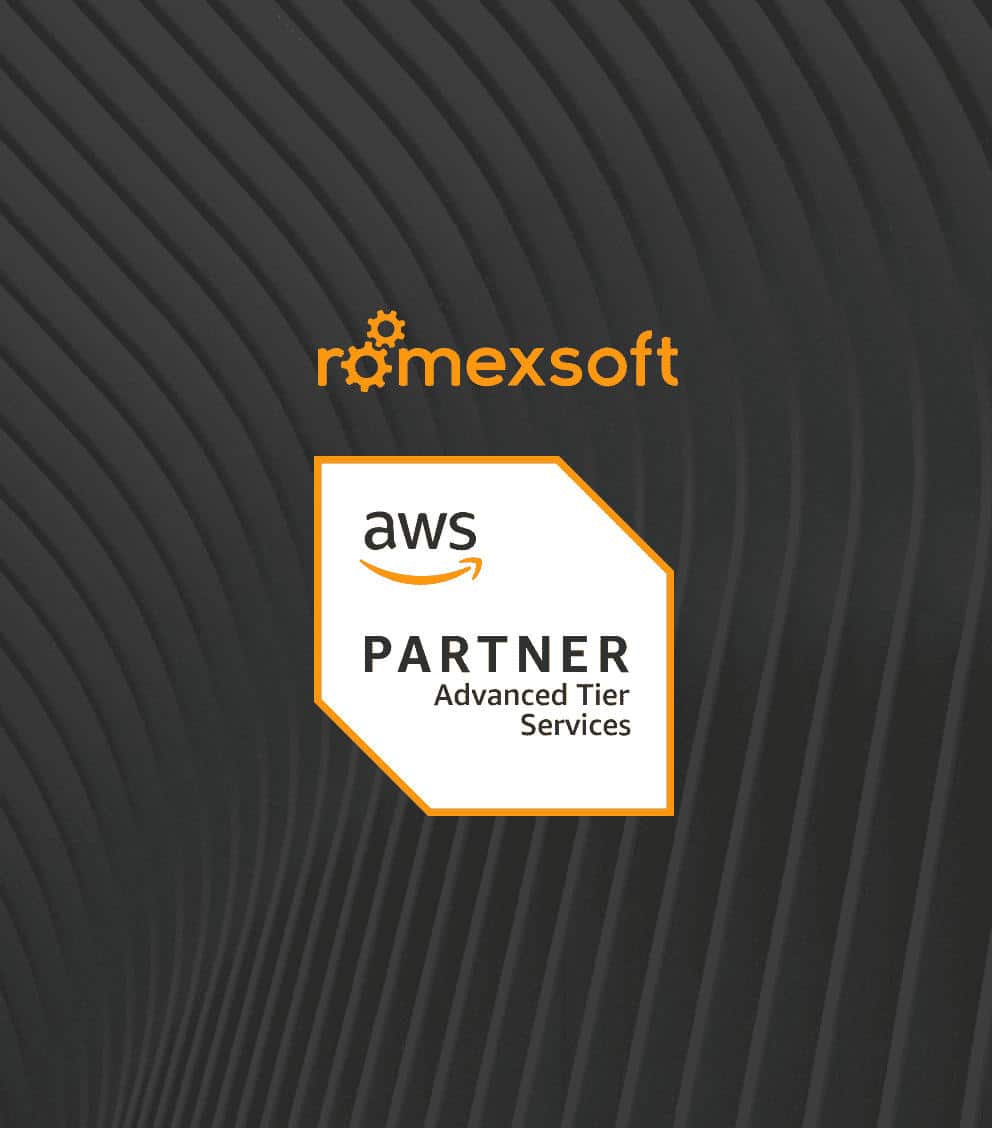Romexsoft Blog
Stay updated with our expert blog, where we share the latest insights on software development, emerging tech trends, industry tendencies, and best practices from our personal experience.
We also provide deep dives into AWS services, offering practical cases, useful tips, and well-thought-out strategies to help you navigate the Amazon cloud.

Given the complexity of balancing business objectives with technological demands, we have created this guide to help you choose and implement the optimal multi tenant architecture for SaaS applications using Java, Spring Boot, and AWS.
By the end of this article, you will understand how to select the optimal approach for your business requirements and how Romexsoft’s expertise can help you achieve your SaaS goals.
In particular, we will cover:
- What multi-tenancy in cloud computing is
- What the benefits and disadvantages of each multi tenant architecture are
- How to implement different types of architectures using Java, Spring Boot, and AWS
- How businesses can understand which type is the most suitable for their needs

Achieving application observability: the ability to gain insight into an app’s inner operation, is a widespread business challenge aggravated by a common problem: effective instrumentation. While observability is increasingly important, the way to achieving it can be obstructed by the intricacies of instrumenting effectively.
The article will lead you to Amazon’s best practices for overcoming this challenge, enabling organizations to gather and analyze their app’s information in order to gain insights as well as take appropriate actions to tackle issues and ensure optimal app performance. Upon reading, you will be able to apply the following knowledge to your app’s merit:
- why instrumentation matters for observability
- how to handle cardinality within visibility
- what tools and services for instrumentation
- what best practices Amazon promotes for achieving visibility

Suppose you have a public-facing web application. Suppose the app users report complaints about the sluggish performance of your application. Both your front-end and your back-end teams dive into their dashboards and metrics, but neither can pinpoint the root of the problem. What we typically discover upon analyzing a case is that businesses have plenty of technical metrics and only a scarce, if not none, representation of user experience metrics for an app. That is exactly the issue with observability that generates certain blindness to the origins of user dissatisfaction.
In this article, we delve into the essence of application observability, uncovering its pivotal role in ensuring robust functionality. Join us to find out:
- what application observability stands for
- why application observability matters for performance
- what the three pillars of app observability are
- what application observability tools and services AWS has to offer.

We at Romexsoft have accumulated extensive experience in assisting our customers in adopting migrating their solutions to the cloud so as to leverage what it has to offer. Drawing from our practical expertise in cloud adoption and migration, we have gained many an insight into the as well as the cost of delaying and avoiding the adoption of cloud services. Thus in this article, we will recount the investments and profits associated with cloud computing: both literally and non-literally. To be more specific, the article explains:
- what the most common reasons for cloud adoption are
- how the cloud adoption begins and what challenges await at the start
- what the typical cloud adoption differentiators are
- what the cost of doing nothing with cloud adoption is
- what the implications of slow cloud migration are

Efficient cloud cost management is a paramount concern for businesses that prioritize innovation and their competitive standing. At the same time, heavy reliance on cloud services to deliver value effectively, smoothly, and rapidly entails the need for cost optimization while maintaining performance. For many businesses, a journey of achieving maximal cost efficiency is challenging to set out on independently, so this article recites the strategies and helpful measures one can employ on the way to sustainable cost optimization.
It covers the questions of:
- how the AWS Well-Architected Framework handles cloud costs
- why and how to analyze business expenditure
- what the cost optimization strategy implementation entails
- how AWS tools aid in cost management
- what role AWS-certified partners play in maximizing cost efficiency.

Mastering Selenium for automation testing is a pathway towards elevating software quality assurance endeavors. The intricacy of handling dynamic elements, managing pop-ups, and tackling synchronization issues can often hinder the smooth progress of automation testing tasks. This guide navigates through the nuances of Selenium, offering a structured pathway towards overcoming common challenges and leveraging advanced strategies for enhanced testing efficiency. Insights include:
- Strategies for handling dynamic elements effectively in Selenium scripts.
- Techniques for managing common disruptions like pop-ups and alerts.
- Solutions for tackling synchronization issues ensuring robust script execution.
- Debugging strategies to identify and rectify issues in your Selenium scripts.
- Leveraging advanced Selenium techniques for elevated testing capabilities.
- Tips and best practices from seasoned Selenium experts for optimized script development.
- Engaging with the Selenium community for continuous learning and staying updated.

Enhance your automation testing with key insights:
- Understand the critical importance of metrics in evaluating automation testing success.
- Analyze core metrics for a comprehensive view of testing effectiveness.
- Dive into advanced metrics for deeper insights into testing processes.
- Learn accurate interpretation techniques for meaningful analysis of testing metrics.
- Utilize metrics for continuous improvement and refinement of testing strategies.
- Explore the integration of metrics in Agile and DevOps for enhanced testing alignment.
- Discover emerging trends and the evolving role of metrics in future automation testing.

Navigate the evolving landscape of QA with these insights:
- Understand the essentials of cloud-based testing, from tools to environments.
- Explore how cloud solutions transform QA with agility and collaborative tools.
- Learn to scale testing resources and maintain security in the cloud.
- Integrate cloud technology seamlessly for efficient QA processes.
- Discover future trends in cloud-based testing, including AI and IoT advancements.

Embark on an exploration of ethical integrity’s vital role in automation testing through our comprehensive analysis. This article offers a deep dive into how maintaining high ethical standards is crucial for the credibility and success of quality assurance practices.
- Understanding Ethical Integrity: Delve into the significance of honesty, transparency, and responsibility in QA processes.
- Navigating Ethical Dilemmas: Examine common challenges in automation testing, such as data privacy concerns and the balance between accuracy and efficiency.
- Strategies for Ethical Testing: Learn about effective methods to uphold high standards, including following a code of ethics and advocating for transparency.
- Impact on Software Quality: Understand the profound influence of ethical practices on software functionality, performance, security, and user satisfaction.
- Role of QA Engineers: Discover the pivotal role of QA engineers in promoting and upholding ethical practices in testing.
- Real-World Case Studies: Gain insights from practical examples that demonstrate the importance of ethical decisions in automation testing.


